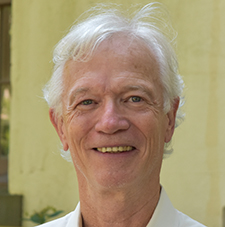Philip Berke
Director, Center for Resilient Communities and Environment; Research Professor
Biography
Philip R. Berke is a research professor in the Department of City and Regional Planning and director of the Center Resilient Communities and Environment at the Institute for the Environment of the University of North Carolina–Chapel Hill.
Berke’s research centers on urban resilience to hazards and climate change, focusing on the theory, methods and metrics of city planning and implementation. He has published more than 100 peer-reviewed articles, book chapters and ten books. He is the lead co-author of an internationally recognized book, “Urban Land Use Planning” (5th Edition), which focuses on integrating principles of sustainable communities into urban form, and co-author of a book, “Natural Hazard Mitigation: Recasting Disaster Policy and Planning,” which was selected as one of the “100 Essential Books in Planning” of the 20th century by the American Planning Association Centennial Great Books. Two of his publications have received the best article award and won an honorable mention award from the Journal of the American Planning Association. He received the National Research Council/National Academies of Sciences Service Award, the Faculty Award for Excellence in Doctoral Student Mentoring from the UNC-Chapel Hill Graduate School, the Outstanding Alumni Award from Texas A&M University, College of Architecture, and the Federal Emergency Management Blanchard Award for Academic Excellence in Higher Education.
Berke currently serves on multiple advisory boards, including the Resilient America Program of the National Academy of Science, Engineering, and Medicine, the National Science Foundation’s Social Science Extreme Events Reconnaissance Platform, and the Advisory Committee for the Strengthening Coastal Communities Resilience in the Great Lakes Region Program. He recently served on the technical advisory board for Louisiana’s Master Plan for Coastal Protection and Restoration Plan. He is the senior editor of the Oxford University Encyclopedia of Water Resources Management and Climate Policy, Oxford University Press.
His current research and community engagement work focuses on developing the Plan Integration for Resilience Scorecard. The aim is to improve knowledge and community capacity to understand interactions among networks of policy institutions, networks of plans produced by such institutions, and social and physical vulnerability to hazards and climate change. Application of the scorecard is currently funded by the U.S. Department of Homeland Security and the National Science Foundation to assist cities in improving urban resilience planning. Multiple U.S., China, and Netherlands cities have actively applied the scorecard.
Education
Ph.D., Texas A&M University, Urban and Regional Planning
M.S., University of Vermont, Natural Resources

